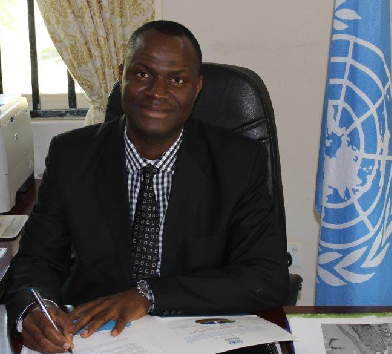-As WAPCP holds 30th Annual General Meeting & Scientific Symposium
For sustainable wealth to be created through the production and availability of medicines for all residents of the West African Region, African leaders must invest in education, research, innovation, favourable policies and development of African solutions to African problems, Dr (Pa) Lamin Beyai, country director, United Nations Development Programme (UNDP) Liberia, has said.
Beyai, who made the remarks while delivering the keynote address at the 30th Annual General Meeting & Scientific Symposium of the West African Postgraduate College of Pharmacists (WAPCP) held in The Gambia, said the theme of the conference “Medicines and Wealth Creation”, was apt and has a lot of impact on the socioeconomic of African countries.

According to him: “What we also know is, when it comes down to it, the most efficient way to build wealth is to create jobs and to fill those jobs, you need healthy people. To better improve the healthcare landscape from an economic standpoint is to invest in the following: Education, Innovation, Public Private Partnerships, and Policy and good governance”.
Explaining the link between medicines and wealth creation, he said there is an indirect link, as the process provides employment and income for pharmacists and for those who educate the pharmacists. There is an additional indirect impact which is evident in the channels through which the Sustainable Development Goals interact.
“By providing the medicines which ‘treat disease and injury,’ pharmacists contribute to the maintenance of human capital (i.e., human wealth), and in doing so, they enable a society to boost its productivity, raise its income, and collectively expand the wealth of the whole nation”, he explained.
While acknowledging that the issues of regulations, quality, access, and affordability of good medicines can have tremendous knock-on effect on the economy, he asserted that the obvious answer to boosting the economy, maintaining good healthcare and providing job is to invest in this burgeoning pharmaceutical industry in West Africa.
The Liberian UNDP boss further emphasized the need to invest in people through job creation, to stem the tide of brain drain in Africa, which has deprived us of most of our good hands.
While urging stakeholders in the pharmaceutical industry to create jobs in the region, he also advised them to invest in good schools and encourage graduates from those schools to stay in the region, in order to avoid brain drain, and thereby enticing the graduates to work in an industry that pays well.
Citing an example of Liberia, he said, “In fact, in Liberia, remittances account for 26 percent of its GDP. But this migration for work overseas creates a void in the workforce at home. People move for work – and we should be seeking to make the conditions at home ripe for prosperity – earning and spending money inside the borders of the region”.
He further called for innovative actions, which is not limited to R&D only, but of drug chains and efficacy – helping everyone access good quality drugs they need when they need them, at a cost they can afford. Use technologies to track and monitor these medicines and vaccines – like Kenya does with its pilot mHealth system or Uganda with its mTrac systems.
He noted that though the knock-on effect of this will be tremendous, but one of the benefits will be better quality medicines manufactured in the region for patients in the region.
Beyai, who describes the drug distribution system in most West African countries as chaotic, with the widespread of fake and substandard drugs, said substantial investment in policy and good governance will bring a drastic reduction to these.
“Stamping out dodgy drugs takes government help. Amending policy frameworks and regulation of the industry in country can help improve people’s access to good quality, affordable medicines. Encourage governments to produce policy and frameworks that ensure corruption and fraud is eliminated, that cross-border trade in the region ensures medicines are made and sold here”, he said.










